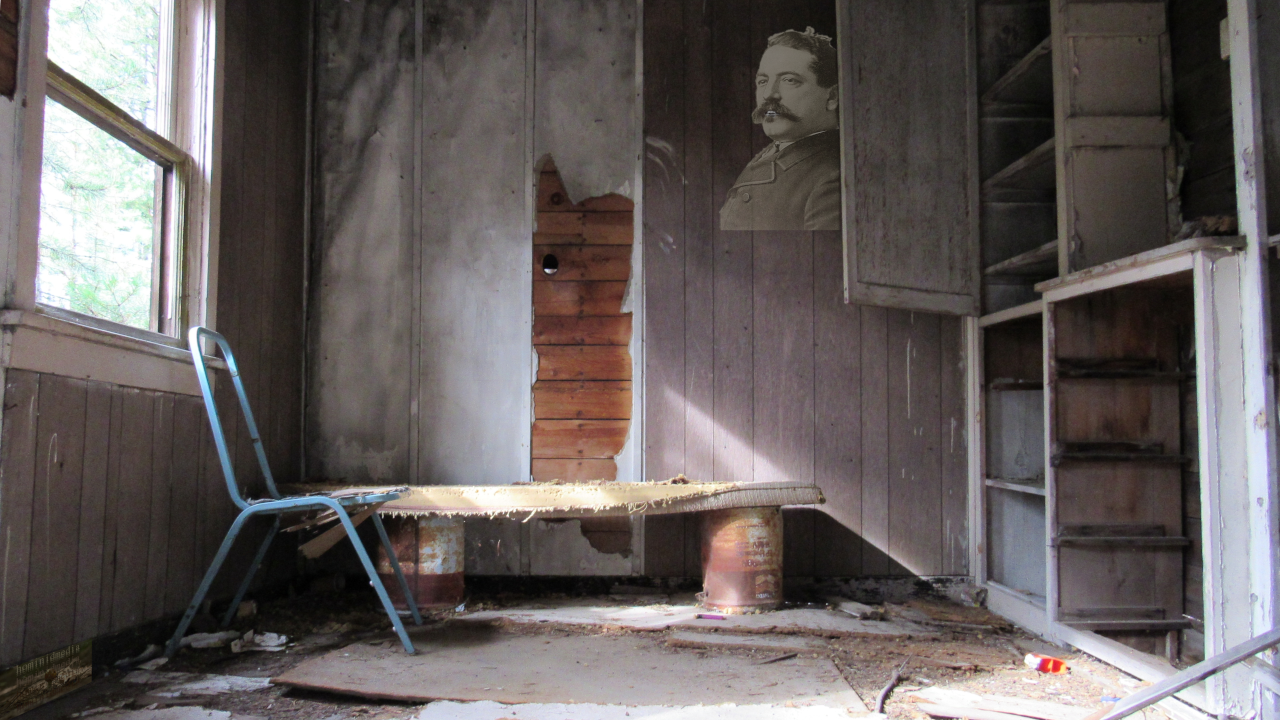
Before WWI, trade unionist Gompers pacifist.
"I want to make it clearly understood that I am and have been all my life, at least from my young manhood until to-day, a pacifist; I have believed that with the civilization of our time we are growing out of the idea of war." (Sam Gompers 18 November 1915).
Within a year Gompers joined the Council of National Defense which was essentially Pres. Wilson's advisory war council.
Pres. Wilson described an "economic point of view" that mixed public military and private industry into a singular complex managed by the "personnel of the council's [nonpartisan] advisory members" including Gompers. To Pres. Wilson, there was "very little difference between the machinery required for commercial efficiency and that required for military purposes...engineer and professional man [entered] into American governmental affairs on a wider scale than ever before." (Woodrow Wilson 12 October 1916).
Following the AFL convention of 1917 Gompers, the lifelong pacifist, promised President Wilson "our undivided support...in conducting the war so that it shall be a war of the people, continued in defense of the fundamental institutions for human liberty." (Samuel Gompers 14 December 1917).
As the war progressed, President Wilson changed the nature of individual liberty with the Selective Service (1917). Draft deferrals were mandated to labor by the Man Power Bill (1918).
Compelling domestic labor is bad for unions but because it outlaws slowdowns, boycotts and strikes. For this reason Gompers didn't support the Man Power Act. Here his support for war and unions is in conflict.
Gompers wrote Wilson, "It seems to me improbable that this proposed compulsory legislation meets your conception of what needs to be or ought to be done." Gompers, seemingly without irony, also pledges to "continue" to "make the military draft a success." These these two positions are not congruent except to preserve the trade union's seat on the war council. The war was nearly over at this point and the AFL contradiction favoring compulsory military service and opposing compulsory industrial service was not resolved. (Samuel Gompers 14 August 1918).
It only took three years for Gompers to go from a lifelong union pacifist to a military industrial fascist. After WWI, Gompers wanted organized labor to be part of the permanent war economy. Gompers advised Wilson to "continue" the war council and pledged the "co-operation of the American labor movement." (Samuel Gompers 27 November 1918).
image credit: "Samuel Gompers, President of the American Federation of Labor, 1894" from John Swinton, A Momentous Question, 1894. Scanned for Wikipedia by Tim Davenport, no copyright claimed.
Gompers, Samuel quoted in "Ninth Day--Thursday Afternoon Session" (18 November 1915) Proceedings of the annual convention of the American Federation of Labor 1915-1916 (via archive.org) Washington D.C.: Law Reporter Company, 1916. pg. 386.
NYT. "President Names Defense Advisers" The New York Times 12 October 1916. pg. 11.
Samuel Gompers to Woodrow Wilson, December 14, 1917. Woodrow Wilson Papers, Manuscript Division, Library of Congress.
Gompers, Samuel, 1850-1924, “Samuel Gompers to Woodrow Wilson,” 1918 August 14, WWP25122, World War I Letters, Woodrow Wilson Presidential Library & Museum, Staunton, Virginia.
Gompers, Samuel, 1850-1924, “Samuel Gompers to Woodrow Wilson,” 1918 November 27, WWP25558, World War I Letters, Woodrow Wilson Presidential Library & Museum, Staunton, Virginia.